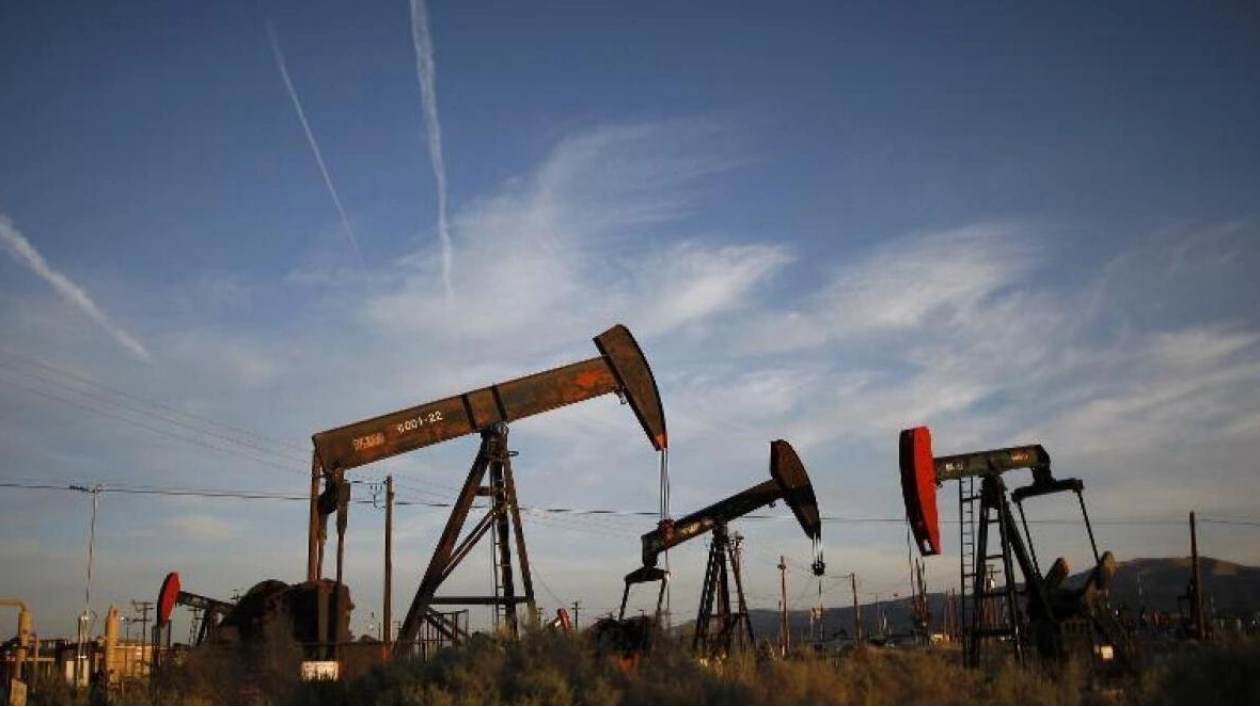Oil prices experienced a roughly 1% decline in volatile trading on Thursday, driven by concerns that sluggish economic growth in Europe could dampen energy demand. This downturn occurred amid ongoing uncertainty surrounding the conflict in the Middle East, keeping traders cautious ahead of the upcoming US presidential election.
Brent futures dropped by 54 cents, or 0.7%, reaching $74.42 per barrel at 11.48am EDT (1548 GMT). Meanwhile, US West Texas Intermediate (WTI) crude fell 59 cents, or 0.8%, to $70.18. Earlier in the trading session, both benchmarks had shown gains of over $1 per barrel.
"The energy complex continues to exhibit volatility as the Middle East risk premium fluctuates daily," noted analysts from energy advisory firm Ritterbusch and Associates in a recent report.
Since Iran launched missile strikes against Israel on October 1, Brent crude surged 8% by October 4 due to fears of an Israeli attack on Iran's oil infrastructure. However, by October 18, it had fallen 8% following reports that Israel would not target energy infrastructure, easing concerns about potential supply disruptions.
Iran, a member of the Organization of the Petroleum Exporting Countries (OPEC), produced approximately 4.0 million barrels per day (bpd) of oil in 2023, according to US Energy Information Administration (EIA) data. Analysts and US government reports project that Iran's oil exports could rise to around 1.5 million bpd in 2024, up from an estimated 1.4 million bpd in 2023.
As the US presidential election, which could significantly impact US Middle East and oil policies, approaches on November 5, the Biden administration continues to advocate for peace between Israel and Hezbollah and Hamas.
OANDA senior market analyst Kelvin Wong highlighted that, based on current betting market data, former President Donald Trump is leading over Vice President Kamala Harris. Trump has proposed making the US a major oil supplier, a move that could potentially depress oil prices.
While betting markets favor Trump, other polls indicate the election result is too close to call. In Europe, business activity in the Eurozone remained stagnant this month, continuing to contract as both domestic and foreign demand declined, despite firms barely raising prices, according to a recent survey.
In the UK, optimism among British firms has plummeted, as evidenced by two surveys released on Thursday, just six days before finance minister Rachel Reeves is set to present the new government's first budget, balancing tax increases with growth stimulation.
In the US, new applications for unemployment aid unexpectedly decreased last week. However, the number of individuals collecting benefits in mid-October reached its highest level in nearly three years, suggesting it is becoming increasingly challenging for those losing jobs to find new employment.
Source link: https://www.khaleejtimes.com






